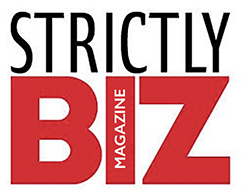Relationships Based Approach in Managing Insurance Agency
Adrian Cheah Chee Siang is a former MBA student at the Othman Yeop Abdullah Graduate School of Business. Currently, he is the own insurance agency and actively involved in providing human resources development programs for an insurance agency.
STRICTLY BIZ MAGAZINE JAN/MAC 2020
RELATIONSHIPS BASED APPROACH IN MANAGING INSURANCE AGENCY
he ability to acknowledge the impact of employee commitment towards organizational outcomes is more critical now than the past few decades. Nowadays, commitment is less thematic and viewed as a constant measurable parameter than satisfaction in this knowledge-based economy. In fact, organizational commitment is crucial to retain a knowledge-based workforce. When it comes to the insurance industry, agent commitment is an important issue because of the difficulty and the costs associated with handling the agents as the organization’s valuable resources. The processes involved in the operations of recruiting and retaining productive agents are complex as these agents have a direct impact on the performance and financial success of the insurance organizations. One way to explain workplace relationships is through the leader-member exchange (LMX) theory. LMX theory of leadership that emphasizes on working relationships between a leader and members in the dyads. The theory is different from the behavioral leadership theories that focus on the leaders’ actions and decision making, where it concentrates on the quality of leader-member relationships. There is four-component that emphasize the quality of the relationship between leader and member, namely: effect, loyalty, perceived contribution, and professional respect. Based on these four components of LMX, the next question is how it can guide a manager, policymakers, and human resource practitioners to understand better the management of the human resources of their companies.
“HUMAN RESOURCE MANAGEMENT PRACTICES AMONG INSURANCE SECTOR”
The design of effective human resource management practices was essential to create the capabilities of the organization to handle and maximize the resources in achieving an organization’s goals. Based on empirical evidence among insurance agency it shows that mutual affection and loyalty aided in enhancing the organizational commitment of the insurance agents. Thus, it is important to design the management practices that promote interpersonal relationships derived from mutual liking and faithfulness for the insurance agents. The policymakers and human resource practitioners should provide training and workshops that encouraged the development of a strong dyadic relationship between the manager and insurance agents, especially in the dimensions of effect and loyalty. The organizations have to offer the platform for the insurance agents to interact and communicate with their manager in building trust as they would not be in the office most of the time. The outcomes of the practices would promote affection and loyalty in a strong dyadic relationship, which led to a higher level of organizational commitment. Besides, the organization should observe and monitor the insurance agents based on their feelings and perceptions of affection and loyalty towards their manager and organization. The human resource management practices similar to the employee engagement feedback should be implemented on the insurance agents annually. Since they were also the organization’s valuable resources contributing to financial success, it is vital to consider their feedback to design further strategic planning directed to their problems. The strategic solutions proposed should emphasize the enhancement of affection and loyalty of the insurance agents on their feedback and, at the same time, should promote the organization’s future retention efforts. Thus, now top management in Malaysia need to consider and to develop a strong dyadic relationship were essential as it would enhance the commitment of the insurance agents. Subsequently, the implications would lead to the financial success of the organization. u

